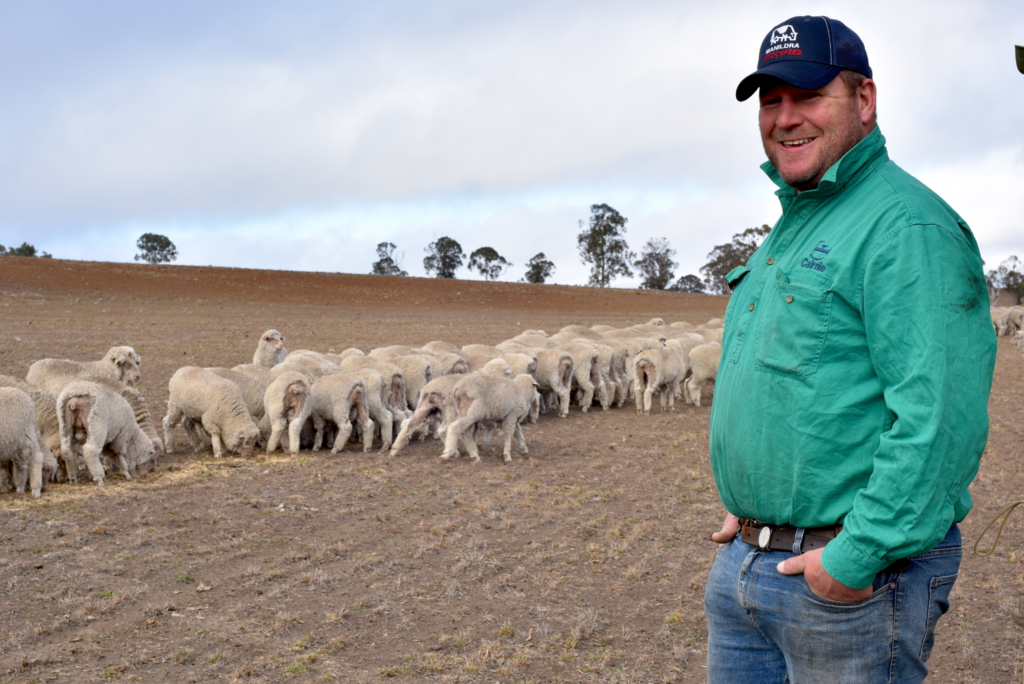With 98.6 per cent of NSW declared in drought, regions such as the New England – normally one of our most productive and high rainfall areas – are devastatingly dry.
For the Manildra Stockfeed team, it means a daily routine of being on-the-ground to work with producers and tailor advice specific to enterprise.
Working with the government-coordinated Local Land Services (LLS) has been integral to ensuring farmers are aware of their options and understand the feed recommendations.
LLS Northern Tablelands Livestock Officer Brent McLeod – who has been on the frontline with Manildra Group National Stockfeed Manager Tim Wirth – said for the majority of New England producers, the current season had been the most difficult experienced.
“Water is a major concern and available paddock feed is non-existent, with hay and grain also in short supply,” said Mr McLeod.
“The DDGS Wheat Pellets have been essential to provide adequate nutrition to cattle and sheep. “The flexibility of the product and competitive pricing make it an economical source of protein, at 20 per cent, to use in a feedlot mix or for lamb producers looking to lift their protein levels in their feed mix.”
With a high regard for Mr McLeod’s technical ability, Mr Wirth has also appreciated his detailed advice on the nutritional requirement of each unique enterprise.
“Brent has been working with several cattle producers in the region, who are feeding out three to five kilograms of DDGS Wheat Pellets per day to supplement the roughage source,” said Mr Wirth.
“Low-quality paddock feed through the season has meant that supplementing with DDGS allows the fat scores of cows to be maintained.”
With ideal climate conditions, the New England region is home to some of the most prestigious and first-class merino wool enterprises – including Carnie, in Walcha.
Operated by Warwick Fletcher and his fifth-generation farmer sons, Jock and Ross, the merino wool and lamb enterprise has had challenges with the lack of rain in the past 12 months.
“We normally would see an average of 30 inches, and this year we’ve received six to eight inches,” said Ross Fletcher, who also distributes stockfeed and practical advice through The Fruit Shop, established with his partner Sophie Henley in early 2018 with a strong emphasis on locally grown.
“In the past, under similar dry conditions, we have had to destock to account for the limited pasture available.
“However, we have adopted a well-balanced complementary food program containing DDGS Wheat Pellets, barley and hay – allowing us to maintain stock numbers.
“Our sheep are either trail-fed in sacrificed paddocks or fed through Advantage lick feeders to control their daily intake. “We feed a 70-30 mix of barely and pellets prior to feeding, while the hay is offered in racks or cradles.”
Benefits of the DDGS Wheat Pellets have gone beyond maintaining the herd, with the heavier lambs, and the first and second-year ewes, showing a greater mature body weight.
Mr Wirth said it was great to see all sheep in excellent condition. “And I will be in contact with the Fletchers come shearing to see how they yield, with a recent test clip indicating the clip will be up on last year, without compromising microns, staple length or position break.”
